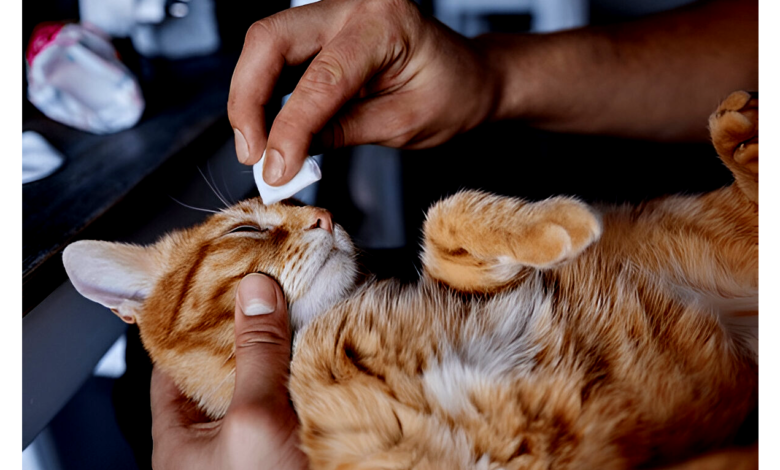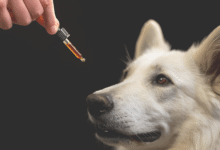
Common Pet Illnesses in the UK & How to Prevent Them
Pet ownership in the UK is both a privilege and a responsibility. Millions of households cherish their furry companions, providing them with love, food, and shelter. However, alongside the joy of pet ownership comes the duty to ensure their health and well-being. Pets, just like humans, are susceptible to various illnesses that can affect their quality of life. Some illnesses are minor and easily treatable, while others can be life-threatening if not addressed in time. This makes awareness and preventative care crucial in maintaining the overall health of pets.
Understanding the most common companion animal illnesses in the UK allows owners to recognize early warning signs and take the necessary steps to halt them. Early intervention not only saves companion animals from suffering but also reduces costly veterinary bills. This article will explore the most frequently occurring companion animal illnesses in the UK, their symptoms, causes, and how they can be effectively averted.
Most Common Illnesses in UK Pets
Fleas and Ticks
Fleas and ticks are among the most prevalent external parasites affecting companion animals in the UK. These tiny blood-sucking creatures not only cause discomfort but can also transmit diseases such as Lyme disease and Bartonella. Pets infested with fleas may exhibit excessive scratching, hair loss, and even allergic reactions. Ticks, on the other hand, latch onto the skin, feeding on blood and sometimes transmitting severe illnesses. Preventing fleas and ticks requires regular use of veterinary-approved treatments, as well as maintaining cleanliness in the home environment. Grooming and inspecting companion animals regularly can help in early detection, preventing an infestation from escalating.
Worm Infestations
Intestinal worms are a common health issue in companion animals, particularly in dogs and cats. Worms such as roundworms, hookworms, and tapeworms can be contracted through contaminated soil, infected prey, or even from their mother’s milk. Pets suffering from worm infestations may experience weight loss, bloated stomachs, diarrhea, or vomiting. Left untreated, these parasites can lead to severe malnutrition and other complications. Regular deworming, along with proper hygiene practices such as picking up companion animal waste and preventing them from consuming raw or undercooked meat, can effectively curb the risk of infestation.
Obesity in Pets
Pet obesity has become an increasing concern in the UK, with many companion animals gaining excessive weight due to overfeeding and a lack of exercise. Just like in humans, obesity in companion animals can lead to serious health problems such as diabetes, heart disease, and joint issues. Overweight companion animals may struggle with mobility, tire easily, and have a decreased lifespan. Maintaining an ideal weight involves feeding animal a balanced diet in appropriate portions, reducing the intake of unhealthy treats, and ensuring they get enough exercise. Daily walks, playtime, and engaging activities can help keep companion animals active and fit.
Dental Disease
Dental health is often overlooked in companion animals, yet it plays a crucial role in their overall well-being. Plaque buildup, tartar accumulation, and gum infections are common dental problems that can lead to bad breath, pain, and tooth loss. In severe cases, untreated dental disease can lead to infections spreading to major organs. Regular brushing with companion animal-friendly toothpaste, providing dental chews, and scheduling routine dental check-ups with a veterinarian can help maintain optimal oral hygiene.
Ear Infections
Ear infections are particularly common in dogs, especially those with long, floppy ears. Bacteria, yeast, and allergies can contribute to these painful infections. Pets suffering from ear infections may shake their heads frequently, scratch at their ears, or develop a foul odor from the ears. Preventing ear infections involves regular cleaning using vet-approved solutions, keeping ears dry after baths or swimming, and addressing any underlying allergies. Early detection and treatment can halt complications and discomfort for the companion animal.
Skin Allergies and Dermatitis
Skin allergies in companion animals are often triggered by environmental allergens, food sensitivities, or flea bites. Pets experiencing allergic reactions may excessively lick or scratch themselves, leading to inflamed skin and hair loss. Managing skin allergies requires identifying and eliminating the allergens where possible, using hypoallergenic diets if necessary, and ensuring consistent flea avert. Regular grooming and maintaining a clean living space can also help reduce the chances of allergic reactions.
Respiratory Infections
Respiratory infections in companion animals, such as kennel cough in dogs and feline upper respiratory infections in cats, are common in the UK. These infections are highly contagious and often spread through direct contact with infected animals. Symptoms may include coughing, sneezing, nasal discharge, and lethargy. Preventative measures include keeping companion animals vaccinated, avoiding exposure to sick animals, and maintaining good hygiene in their living environment. In cases where symptoms persist, veterinary consultation is necessary to halt complications.
Gastrointestinal Issues
Vomiting and diarrhea are common signs of gastrointestinal distress in animal and can be caused by dietary indiscretion, infections, or food intolerances. Some cases resolve on their own, but persistent symptoms can indicate underlying issues such as pancreatitis or inflammatory bowel disease. Preventing digestive problems involves feeding companion animals a consistent, high-quality diet, avoiding sudden food changes, and keeping toxic substances out of their reach. If symptoms persist for more than 24 hours, veterinary attention should be sought.
Urinary Tract Infections (UTIs)
Urinary tract infections can be painful and may cause companion animals to urinate frequently, strain while urinating, or have blood in their urine. Bacteria are the most common cause of UTIs, though underlying conditions such as bladder stones or kidney disease may contribute. Providing plenty of fresh water, encouraging regular bathroom breaks, and maintaining good hygiene can help halt UTIs. If symptoms appear, a vet visit is essential to determine the appropriate treatment.
Arthritis and Joint Problems
Aging companion animals, particularly larger dog breeds, are prone to arthritis and other joint-related conditions. Stiffness, reluctance to move, and difficulty standing up are common signs of joint issues. Maintaining a healthy weight is crucial to reducing stress on joints, and providing supplements such as glucosamine can support joint health. Moderate exercise and orthopedic bedding can also help improve comfort for companion animals with arthritis.
Preventing Common Pet Illnesses
The best way to keep animal healthy is through preventative care. Regular vet check-ups allow for early detection of health issues before they become serious. Feeding a well-balanced diet tailored to the companion animal age, breed, and health status ensures they receive essential nutrients. Consistent parasite avert, including flea, tick, and worm control, helps protect against infestations. Exercise and mental stimulation are crucial for maintaining physical fitness and mental well-being. Vaccinations play a significant role in preventing severe diseases, and companion animal owners should adhere to their vet’s recommended vaccination schedule.
Read More: What is parvo in dogs and how can you prevent it?
Conclusion
Caring for a companion animal goes beyond providing food and affection; it requires a commitment to their health and well-being. By understanding the most common companion animal illnesses in the UK and how to halt them, companion animal owners can ensure their furry companions live long, happy, and healthy lives. Regular veterinary care, proper nutrition, hygiene, and preventative measures can make a significant difference in keeping animal free from illness.
Being proactive in companion animal healthcare not only improves their quality of life but also strengthens the bond between companion animals and their owners, ensuring a lifetime of companionship and happiness.
FAQs
1. How often should I take my companion animal to the vet?
It is recommended to take your companion animal to the vet at least once a year for a general check-up. However, older companion animals or those with existing health conditions may require more frequent visits to monitor their health and address any emerging concerns.
2. What are the early signs of illness in companion animals?
Common early signs of illness in companion animals include lethargy, loss of appetite, vomiting, diarrhea, excessive scratching, coughing, and behavioral changes. If you notice any of these symptoms, consulting a vet as soon as possible is essential to halt complications.
3. How can I help my companion animal maintain a healthy weight?
To help your companion animal maintain a healthy weight, provide a balanced diet with appropriate portion sizes, limit unhealthy treats, and ensure they get daily exercise. Regular walks, interactive play, and mentally stimulating activities can keep them active and fit.
4. What vaccinations are necessary for my companion animal?
Core vaccinations for dogs include rabies, distemper, parvovirus, and leptospirosis. For cats, essential vaccines include feline leukemia, calicivirus, and rabies. Your vet can provide a tailored vaccination schedule based on your animal lifestyle and risk factors.
5. How do I know if my companion animal has a parasite problem?
Signs of a parasite infestation in companion animals include persistent itching, hair loss, weight loss, bloated stomach, diarrhea, and visible worms in feces. Regular deworming, flea, and tick avert treatments can help protect your companion animal from parasites.







